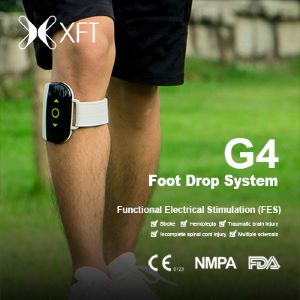Poster
Session: Spinal fusion surgery among participants with chronic low back pain enrolled in a digital musculoskeletal program: an observational study
Spinal fusion surgery among participants with chronic back pain enrolled in a digital musculoskeletal program: an observational study
Wednesday, November 1, 2023
5:30 PM - 5:36 PM
Location: VIRTUAL

Sandhya Yadav, PhD
Health Economist
Hinge Health Inc, California, United States
Poster Presenter(s)
Research Objectives: To compare 12-month spinal fusion surgery use for managing back pain among digital musculoskeletal (MSK) program participants versus the comparison group who received traditional physical therapy (PT).
Design: Retrospective observational study with propensity score matched comparison group.
Setting: Commercially insured population representing over 100 million insured lives across all US states and territories.
Participants: Participants 40-64 years old with chronic back pain (M54.5) and continuous health plan enrollment were included. Digital MSK participants were engaged in digital MSK back program. Comparison group members had back-related PT identified via ICD-10 and CPT codes. Digital program members were matched to comparison members with similar demographics, comorbidities and baseline MSK-related medical care use. Spinal fusion surgery rates at 12 months post participation were compared.
Interventions: The digital MSK program was an annual health benefit for employees and dependents offered through their employers. It’s goal was to help participants manage chronic back pain by offering exercise therapy, feedback, education, and personal health coaching.
Main Outcome Measures: Rate of spinal fusion surgery at 12 months among digital MSK program members with chronic back pain compared to propensity score matched nonparticipants receiving PT for chronic back pain.
Results: Among the study participants, 0.6% of digital MSK members and 1.4% of comparison group members had spinal fusion surgery at 12 months (difference: 0.8%, p<.01). Sensitivity analysis using regression showed that digital MSK members had 45% lower odds of spinal fusion surgery after adjusting for potential confounders (AOR 0.55, 95% CI 0.34-0.84, p=0.011).
Conclusions: Our findings suggest that participation in a digital MSK program is associated with lower rate of spinal fusion surgery among individuals with chronic back pain in a commercially insured population. These results highlight the potential benefit of digital MSK programs as an alternative or complementary approach to PT in managing chronic back pain and reducing the need for invasive surgical interventions.
Author(s) Disclosures: SY, GW, LL and RH are employed by and have equity interest in Hinge Health, Inc. LG and QZ declare no competing interests.
Design: Retrospective observational study with propensity score matched comparison group.
Setting: Commercially insured population representing over 100 million insured lives across all US states and territories.
Participants: Participants 40-64 years old with chronic back pain (M54.5) and continuous health plan enrollment were included. Digital MSK participants were engaged in digital MSK back program. Comparison group members had back-related PT identified via ICD-10 and CPT codes. Digital program members were matched to comparison members with similar demographics, comorbidities and baseline MSK-related medical care use. Spinal fusion surgery rates at 12 months post participation were compared.
Interventions: The digital MSK program was an annual health benefit for employees and dependents offered through their employers. It’s goal was to help participants manage chronic back pain by offering exercise therapy, feedback, education, and personal health coaching.
Main Outcome Measures: Rate of spinal fusion surgery at 12 months among digital MSK program members with chronic back pain compared to propensity score matched nonparticipants receiving PT for chronic back pain.
Results: Among the study participants, 0.6% of digital MSK members and 1.4% of comparison group members had spinal fusion surgery at 12 months (difference: 0.8%, p<.01). Sensitivity analysis using regression showed that digital MSK members had 45% lower odds of spinal fusion surgery after adjusting for potential confounders (AOR 0.55, 95% CI 0.34-0.84, p=0.011).
Conclusions: Our findings suggest that participation in a digital MSK program is associated with lower rate of spinal fusion surgery among individuals with chronic back pain in a commercially insured population. These results highlight the potential benefit of digital MSK programs as an alternative or complementary approach to PT in managing chronic back pain and reducing the need for invasive surgical interventions.
Author(s) Disclosures: SY, GW, LL and RH are employed by and have equity interest in Hinge Health, Inc. LG and QZ declare no competing interests.

.jpg)
